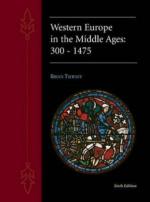|
This section contains 1,950 words (approx. 7 pages at 300 words per page) |

|
In 1348, a plague struck Europe. Commonly referred to as the Black Death or bubonic plague, the disease was so highly contagious and virulent that in those areas infected, up to three-quarters of the population became its victims. Perhaps the best and most articulate eyewitness account of the plague is found in the Decameron of Giovanni Boccaccio (1313– 1375). Though the main work is a collection of one hundred short stories, it is the introduction of the Decameron that offers a vivid and despairing account of the plague in Boccaccio's native city, Florence, Italy. Boccaccio was a brilliant Italian poet, storyteller, and humanist and is known as the "Father of the Short Story."
In the year of our blessed Savior's Incarnation, 1348, that memorable plague ravaged the excellent city [of Florence], far beyond all the rest in Italy; which plague, by operation...
|
This section contains 1,950 words (approx. 7 pages at 300 words per page) |

|




